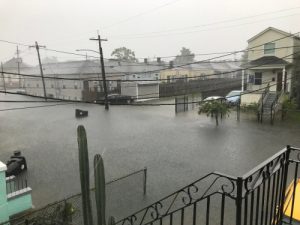
Following the destruction wrought on their Louisiana constituents during the current hurricane season, U.S. Reps. Steve Scalise (R-LA) and Garret Graves (R-LA) urged the Federal Emergency Management Agency (FEMA) to delay the Oct. 1 implementation date for the new National Flood Insurance Program (NFIP) rate-setting program.
“As Louisianans struggle to put their lives and communities back together after Hurricane Ida, the last thing they need to see is an increase in the rates they are charged to keep their NFIP policy. Unfortunately, that’s precisely what is on the horizon,” the congressmen wrote in a Sept. 14 letter sent to FEMA Administrator Deanne Criswell.
Phase I of Risk Rating 2.0 begins on Oct. 1 and new NFIP policies will be subject to a new set of rates, with the rate changes taking full effect for all remaining policies on April 1, 2022, according to their letter.
“The devastation caused by Hurricane Ida and the long road to recovery in its aftermath have placed difficult burdens on Louisiana families as we work to rebuild,” Rep. Scalise said. “Especially as communities continue to recover, it would be devastating for FEMA to implement Risk Rating 2.0 and cause NFIP rates to skyrocket for some policyholders who play by the rules.”
Rep. Scalise said lawmakers must continue working to implement long-term reforms to NFIP to ensure the program remains affordable and stable for the future.
“We have seen flood insurance rate spikes in St. Charles Parish that would increase 600 percent, and policies in Lafourche Parish that could jump 1,000 percent based upon this new, flawed system being pushed by FEMA,” Rep. Graves said. “We have victims of Hurricane Ida that just had their home damaged or destroyed, our communities are without electricity or internet, and you are going to spike them with an extra bill for $4,000 annually?
“As we just witnessed with the New Orleans area Hurricane Protection System, the solution is better protection, not unaffordable flood insurance rates,” added Rep. Graves.
While FEMA also has refused to disclose what the average policy premium would be in Louisiana once Risk Rating 2.0 has fully taken effect, the congressmen wrote that they recently got a glimpse behind the curtain, noting that one policyholder in Larose, La., was quoted $572 for a new policy set to take effect on Sept 30. However, “when they corrected their effective date to October 8 due to the standard 30-day waiting period, their new annual premium was quoted at $5,531 – an 867 percent increase,” they wrote.
The lawmakers urged a delay in the implementation of Risk Rating 2.0 until Congress can address what they called “the longstanding structural and affordability problems within the program.”
“Folks in Louisiana and elsewhere are rightly concerned that the effect of this policy will be to drive people out of the program and out of their communities,” they wrote.



